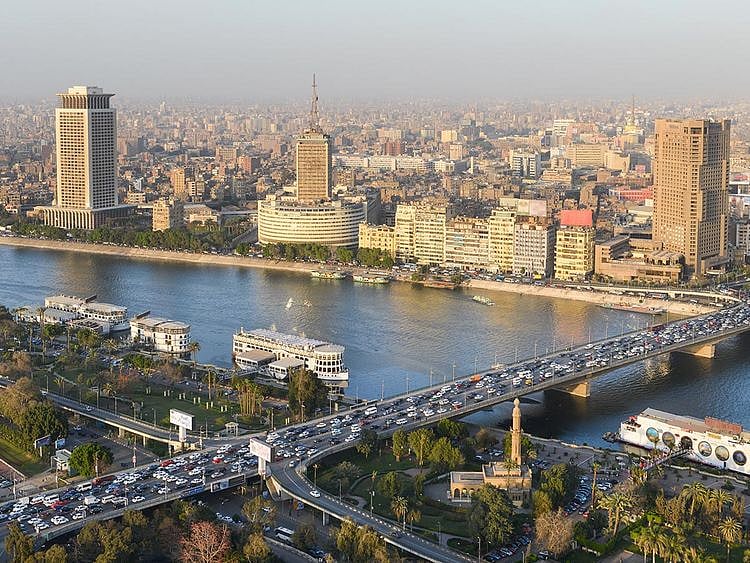Arab foreign ministers meeting in Cairo in an emergency session have put the so-called deal of the century behind them and reaffirmed their support for the two-state solution as the only path to reaching a comprehensive regional peace and delivering an independent Palestinian state along the lines of 4 June 1967 with East Jerusalem as its capital. They also renewed commitment to the 2002 Arab Peace Initiative and the principle of land for peace.
The emergency meeting was called at the request of Egypt and Jordan and it comes few weeks after a new US administration assumed office in Washington; one that under Joe Biden has renewed its commitment to the two-state solution as the only way to resolving the Israeli-Palestinian conflict.
There is a glimmer of hope that President Biden and his foreign policy team will repair the damage that the previous administration had dealt to the Palestinian quest for liberation and independence within the framework of the Oslo Accords and UN resolutions all of which support Palestinian right to have a state of their own.
Biden had affirmed his support of the two-state solution during a call he had with Jordan’s King Abdullah last November and his Secretary of State Anthony Blinken said that the US administration will restore ties with the Palestinians that were cut by Trump, resume aid and reject unilateral actions.
While the Biden administration will not rescind Trump’s decision to move the US embassy to Jerusalem, its position on East Jerusalem appears to conform to that of long-standing US foreign policy that considers the future of the city subject to negotiations.
Biden is yet to speak to Israeli Prime Minister Benjamin Netanyahu; the delay has raised eyebrows in Israel. While Biden remains committed to Israel’s security and Blinken has said that Washington will confer with Israel over the next steps regarding the Iran nuclear deal, the White House is expected to stand firm in its opposition to colony building in the West Bank and East Jerusalem and to any attempt to annex Palestinian territory.
There are a number of events that could have an impact on Washington’s approach to the Israeli-Palestinian conflict. Israel will hold its fourth Knesset elections within two years in March and it is no secret that Biden hopes that Netanyahu would not emerge as the next Israeli prime minister.
Under President Barack Obama, with Biden as vice president, ties between the two men were strained especially when Netanyahu rebuffed the White House and addressed a joint session of Congress. Netanyahu also ignored Obama’s call to halt the expansion and building of new colonies.
In retaliation the US abstained from a UN Security Council vote condemning Israeli colonies in December 2016.
Another event has to do with Palestinian efforts to end the rift and hold legislative and presidential elections this summer. Under Jordanian and Egyptian pressure, President Mahmoud Abbas has finally issued decrees to hold such elections in a bid to renew the legitimacy of Palestinian institutions and present a unified position to the US and the rest of the world. Talks to end the rift and agree on a road map for the elections took place in Cairo this week with the participation of 14 Palestinian factions.
There are still hurdles to be negotiated ahead of the elections with Hamas and Fattah each having internal challenges. Hamas is yet to agree to hand over control of the Gaza Strip to the Palestinian Authority.
The latest meeting of the Arab foreign ministers is aimed at preparing the stage for a new US engagement in the region’s issues that includes Iranian meddling in neighbouring countries and the need to involve international parties, including the United Nations and the International Quartet, to take practical steps for credible peace negotiations that address all issues for a final solution leading to the end of the Israeli occupation.
A new development that may change the dialectics of the injustice suffered by the Palestinians is the latest ruling by the International Criminal Court (ICC) that it has jurisdiction over Palestinian territories — the West Bank, Gaza Strip and East Jerusalem. The ruling recognises the Palestinian state’s territorial integrity and conforms to the recent Arab position. The ICC ruling is considered a major blow towards any attempt to bury the two-state solution.
While the road to resuming peace talks remains fraught with obstacles, there is a sense of hope that the Biden administration will take serious steps to launch a new initiative. Its position will become clearer next month when King Abdullah is expected to be the first Arab leader to visit the White House to make the case on behalf of the rest of Arab leaders.
Osama Al Sharif is a journalist and political commentator based in Amman.
Sign up for the Daily Briefing
Get the latest news and updates straight to your inbox
Network Links
GN StoreDownload our app
© Al Nisr Publishing LLC 2026. All rights reserved.
